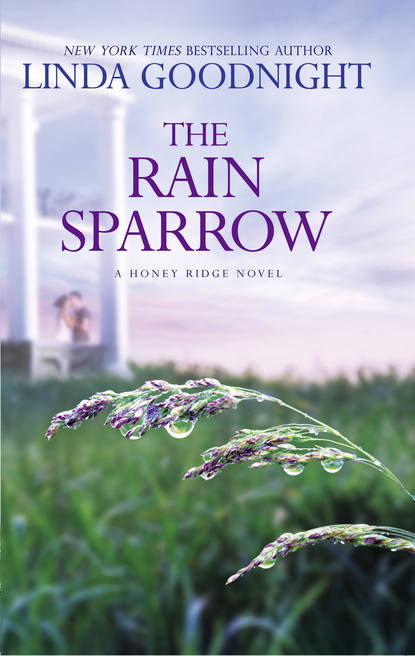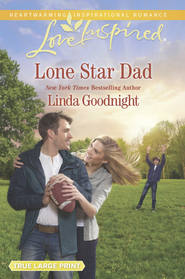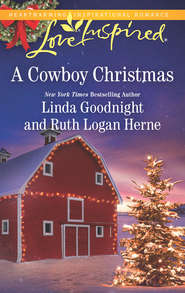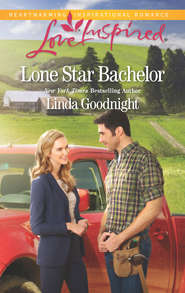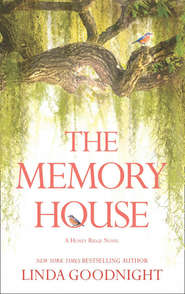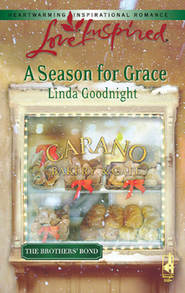По всем вопросам обращайтесь на: info@litportal.ru
(©) 2003-2025.
✖
The Rain Sparrow
Автор
Год написания книги
2019
Настройки чтения
Размер шрифта
Высота строк
Поля
Coffee, and plenty of it, was a must. He wasn’t a Red Bull kind of guy. Something about it seemed addictive to him, and if there was anything he feared greater than losing his only useful resource—his fertile mind—it was addiction. Addictions came, he knew, in many forms.
Leaving the laptop curser to blink a blind eye, he let himself out of the luxurious Mulberry Room and made his way down shadowy stairs carpeted in bloodred, his hand on the smooth wooden banister, taking care on the creaky third step he’d noticed earlier. No self-respecting author of murder and mayhem missed a creaky step.
Lightning illuminated the curved staircase, and thunder rumbled like a thousand kettle drums. The house stood steady, quiet even, as if it had weathered too much to be bothered by a thunderstorm. There were stories here. He could feel them.
Hayden’s Scots-Irish blood heard the dance of his ancestors in the thunder, saw wave-tossed fishing vessels on storm-gray seas and imagined a woman standing on the shore, hand to her forehead, watching while in the misty shadows lurked the equally watchful predator, biding his time.
Hayden tucked away the image for future reference. The new book was to explore the dark undercurrents hidden behind the welcoming smiles and sweet tea of a small town in the rural South, not the storm-tossed coasts of Ireland.
At the base of the stairs, he crossed the foyer through to an area the proprietress had termed the front parlor, a room of times past with a marble fireplace enclosure and Victorian decor, and into the much more modern kitchen. He fumbled for a light switch, mildly concerned about waking the sister-owners who resided somewhere on the first floor, but dismissed the concern in favor of coffee.
A quick survey of the brown granite countertops revealed no coffeemaker. He cursed himself for not remembering to ask about essential coffee equipment in his rented room, of which there was none. Here, in the large copper-and-cream kitchen, the coffee machine could be anywhere. He had no luck locating it but found a tea bag caddie, a discovery that made him snarl.
While he pondered the usefulness of lemon zinger tea, his cell phone buzzed against his hip. He winced at the sudden racket, though if the thunder didn’t wake the house, a ringtone shouldn’t. Still, out of consideration and being the new guest in the place, he slapped the phone silent. He’d intended to dump the device in the bottom of his suitcase and forget it for a few days, but out of habit, he’d stuck the phone in his back pocket.
“A pity,” he grumbled. “And stupid.”
He knew who the caller was. The only person who ever called him in the dead of night. She’d been the one who taught him never to sleep too soundly.
“Hello, Dora Lee.”
He heard her quivery intake of breath and braced himself for the histrionics or cursing. One or the other was inevitable.
When she didn’t respond, a tingle of worry forced a regrettable question. “Are you all right?”
“No, I’m not all right, though a lot you care. I’m sick. You know I’m sick, and you don’t help me. How am I supposed to get my medicine?”
Hayden closed his eyes and leaned against the hard counter edge. He could imagine her there in the cluttered trailer among unwashed dishes and fast-food containers filled with dry, half-eaten meals, hair wild and eyes wilder, hands shaking in desperation. “What did you do with the last money?”
“You think that’s enough? You think I can pay rent and buy food and keep the lights on with that?”
His sigh was heavy. “Is the electricity off again?”
“Been off. I had to have my medicine. What good is lights if a body hurts too bad to open her eyes.”
“Dora Lee, I won’t send money for any more pills.” God knew, he’d contributed to her addiction too long already with the ever-raw hope that she’d change, a hope that even now burned with a flickering flame. “You’re killing yourself. I’ll come to Kentucky, get you into a clinic—”
The scream in his ear was louder than the thunder. “Shut up! Shut up—you hear me? You ungrateful scum. I should have drowned you when I had the chance, for all the good you’ve done me. Keep your filthy money.”
The line went dead in his ear.
Weariness of the past few months pressed in. His stir of creative energy seeped out like lifeblood on the kitchen tile.
He should never have given her his cell phone number, but the desperate little boy inside him still yearned to make things better with his embittered, addicted nightmare of a mother. Even when he was small, before the dark and deadly underbelly of a coal mine had killed his gentle father, Dora Lee had popped illegally gotten pills for imaginary headaches and hated her only child. And he didn’t know why.
His mother had no idea the same hated son was now Hayden Winters, successful novelist. It was a secret he would never share with her. Could never share. The ramifications were too deep and disturbing to consider.
Long ago, he’d changed his name and re-created his past in an effort to become something besides the dirtiest little boy in the worst part of Appalachia. Suave, confident Hayden Winters was as fictitious as the novels he wrote. Dora Lee wouldn’t have cared anyway. All she cared about was that he sent money.
For her unconcerned ignorance, Hayden would ever be grateful to the God who’d rescued him from the mines and Dora Lee Briggs. If the press got hold of his mother, Hayden could kiss his tightly controlled privacy goodbye.
He was glad she couldn’t read, though as a needy boy, hoping to please his mother, he’d offered to teach her. For his offer, she’d battered him with the book until the binding loosened and the pages ripped, raging that she wasn’t as stupid as he thought.
At least a couple of times a year, he made the trek to see her, again out of some psychological wound that needed to be fed. Each time, he’d leave behind another piece of himself along with a parting gift that she would trade, in addition to her monthly draw, for OxyContin or whatever pills she could get that would take her away from reality for a while.
Dora Lee Briggs was his ugly secret. One of them.
With the wound in his soul open and throbbing, Hayden stuck a cup of water in the microwave. Lemon zinger would have to do.
* * *
Carrie Riley tiptoed down the stairs, shivering in her bare feet and lightweight pajamas. Storms made her nervous. Really nervous. She couldn’t sleep. Couldn’t begin to sleep with all that fierce wind whipping the trees and thunder making her jump out of her skin. How anyone else could sleep boggled her well-ordered mind.
She didn’t know where she was going, considering the late hour, but since the family parlor housed the inn’s only downstairs television to check the weather, she’d head there. What if a tornado was coming? Didn’t anyone in this house think about that?
Carrie hated storms. Absolutely hated them. Even in infancy, according to her mother, Carrie had screamed like a banshee, inconsolable, at the first thunderclap. She didn’t scream anymore, but she did quake and shake and long for someone to hold her.
Penlight aimed at the floor, she gripped the banister and made her way down. The third step squeaked. She stopped, winced and then went on. She was such a wimp. Such a mouse.
A sleepover was a silly thing for grown women to do, but yesterday in the light of day, before the storm, time spent with sisters and friends had sounded like the perfect respite. She and her two sisters, lifelong friends of the inn’s sister-owners, Valery Griffin and Julia Presley, had decided on a weekend retreat to reconnect and have some fun. Julia was making a fresh effort to reclaim old friends and move forward after the terrible abduction of her son six years ago, and Carrie was pleased to be part of her friend’s healing.
They’d had a great time, exchanging stories and giggling over a bit too much Moscato as they painted toenails and discussed Julia’s engagement to Eli Donovan of the Knoxville Donovans and urged her to have a big, fancy wedding right here at Peach Orchard Inn.
Now the others were snoozing like fossil rocks while she trembled in fear over the storm and nursed the teeniest headache. Wine had a tendency to do that to plain old Carrie of the boring life who rarely drank anything stronger than a single-shot espresso. She couldn’t even tolerate a double. Wimp.
At the bottom of the steps, she noticed a light in the kitchen. Curious and eager for human companionship, Carrie hurried on shaky knees across the cool wood floors, but skittered to a stop in the arched doorway when she spotted him. For the person in the kitchen was definitely a him. A lean, rangy, masculine him.
He obviously had not yet been to bed. Still in casually expensive jeans she recognized only by the label on the back pocket holding a cell phone and a long-sleeved navy pullover with the sleeves pushed back, he was turned away from her, lifting a tea bag in and out of a China cup. His wide shoulders, like his forearms, were muscled, his hands long and strong-looking as if he worked outside for a living. But not in those jeans. Or with that haircut.
He wore a rich man’s haircut. She knew this because her sister Nikki was the most fashion-conscious woman in Honey Ridge. Boutique owner Nikki knew fashion, knew haircuts, knew high-end anything, unlike Carrie, who couldn’t tell Gucci from a gunnysack and basically didn’t care. The man’s straight brown hair was casually shoved off his forehead in a loose, sexy muss that probably cost a bazillion dollars to maintain.
Carrie couldn’t decide whether to speak or wait until he noticed her. In her case, that might be another fifty years. Men did not notice Carrie Riley. Not unless they wanted to check out a book.
The loudest clap of thunder ever heard, at least to Carrie, rocked the countryside. The house trembled. More lightning followed on its tail, a blinding explosion of light and sound that crackled the air.
Carrie jumped, fists raised, and squeaked.
The spoon clattered against the counter. The man stilled and then slowly turned his head. He was good-looking, darn it. Romantic-looking, like one of the poets she read incessantly with a deep longing for that kind of love to find its way to her house. Now she’d be a bumbling, stuttering mess for more reasons that the storm.
“Sorry. I didn’t mean to startle you.” She crossed her arms tightly over her chest.
A very nice, full-lipped mouth curved. Eyes the color of fog and smoke and mystery watched her. “You squeaked.”
Like a mouse. Stupid. Stupid.
“Storms scare me. I thought I’d better check the weather.”
“It’s raining.”





